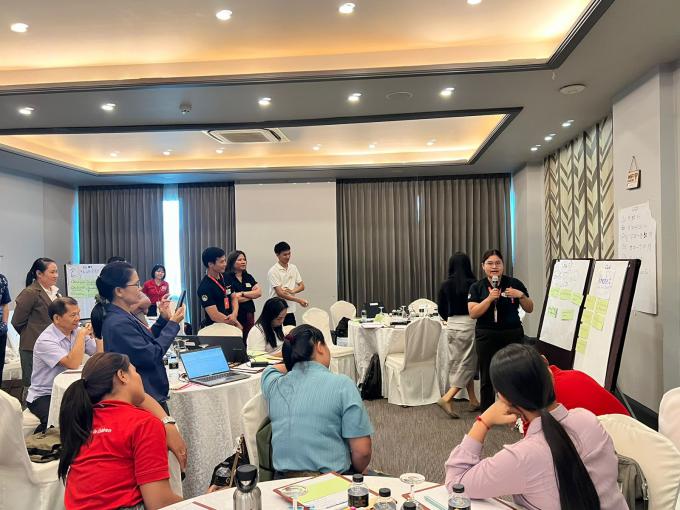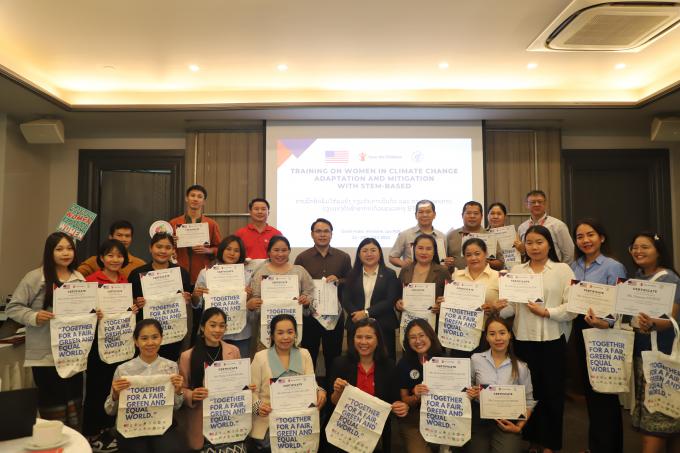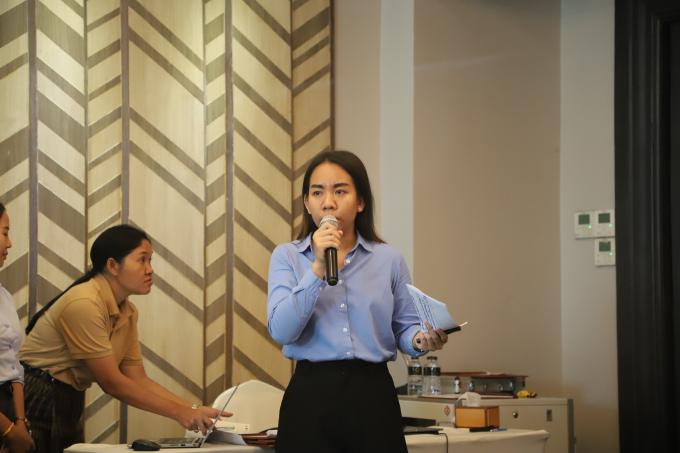Women Empowerment in Climate Change: A Crucial Step Towards Climate Resilience in the Lao Community
Vientiane, Laos – In a pivotal step towards addressing climate change impacts, a specialized training on "Women in Climate Change Adaptation and Mitigation with a STEM-based Approach" was held from July 22-24, 2024. The event brought together 28 participants from 14 civil society organizations (CSOs), focusing on empowering women with the knowledge and skills needed to foster climate resilience within their communities.
Onchanh, a prominent figure at the event, emphasized the crucial role women play in tackling climate change. "Women also play a significant role in helping the community address climate change impacts. It’s important to empower them with knowledge and skills to create climate resilience in the community," she stated.
The comprehensive three-day training, supported by the U.S. Department of State and hosted by Save the Children in Laos, featured a series of sessions that were both informative and practical. The training aimed to equip participants with gender-sensitive and STEM-based strategies to effectively combat the challenges posed by climate change. Key sessions covered a wide range of topics, including:
- Understanding Climate Change Impacts: Participants gained insights into the various effects of climate change on local environments and communities.
- Adaptation and Mitigation Strategies: The training provided practical approaches to adapt to and mitigate these impacts, with a special emphasis on the unique challenges faced by women.
- Hands-On Exercises: These interactive sessions allowed participants to apply theoretical knowledge in practical scenarios, enhancing their problem-solving skills.
- Project Proposal Development: This segment aimed to empower participants to conceptualize and propose actionable projects that address climate issues, particularly through a gender lens. At the end of the session, each group also had the opportunity to pitch and present their action plans and receive helpful feedback from peers.
A notable aspect of the event was the involvement of a Climate Change and Sustainable Specialist from the Faculty of Environmental Sciences at the National University of Laos. Their expertise provided valuable insights and guidance, reinforcing the importance of integrating scientific knowledge into community-driven climate action.

Collaborative Efforts
The training was a collaborative initiative supported by the U.S. Department of State and hosted by Save the Children International in Laos. Expert facilitation was provided by a Climate Change and Sustainable Development Specialist from the Faculty of Environmental Sciences, National University of Laos. The involvement of these esteemed organizations and individuals underscored the importance of multi-stakeholder cooperation in addressing global challenges like climate change.
Women as Climate Champions
The training aligned with the goals of the Women Overcoming the World’s Climate Crisis with STEM (WOW CCS) project, which seeks to create a coalition of women-led CSOs. This project aims to provide these organizations with capacity strengthening, technical assistance, and financial support for network development. By empowering women within these CSOs, the initiative strives to foster a new generation of climate champions who can lead their communities towards a more sustainable future.
The Road Ahead
As Onny emphasized, empowering women with the right tools and knowledge is crucial for building community resilience to climate change. This training marks an essential step in that direction, offering a platform for women to emerge as leaders in climate action. The initiative also reflects a broader commitment to gender equality and sustainable development, demonstrating that when women are empowered, entire communities benefit.
In conclusion, the training in Vientiane has not only equipped participants with vital skills but also reinforced the critical role of women in the global fight against climate change. As these newly trained individuals return to their respective organizations, they carry with them the potential to drive meaningful change, ensuring a resilient and sustainable future for all.
 Laos
Laos 
